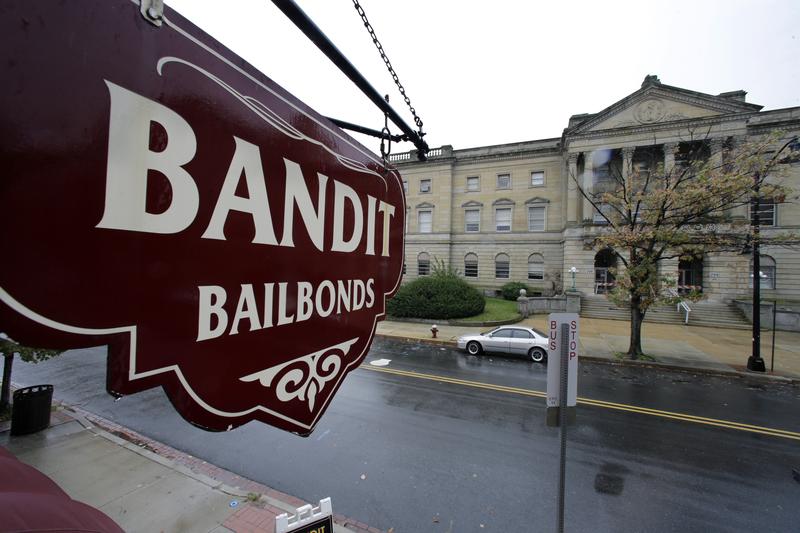
In a blow to the commercial bail-bond industry, a federal appeals court has upheld the constitutionality of New Jersey's ambitious effort to do away with cash bail.
The Criminal Justice Reform Act went into effect in January 2017, eliminating cash bail for most criminal defendants. A few months later, the bond industry challenged the law on behalf of a man charged in a bar fight who was forced to wear an ankle monitor instead of paying bail like he preferred.
The lawsuit, filed by Brittan Holland and the Lexington National Insurance Corporation, claimed defendants have a constitutional right to pay to get out of jail. But the United States Courts of Appeals for the Third Circuit ruled against them Monday.
"Under the old system, they were making [money] hand over fist at the expense of justice and at the expense of fairness," Alexander Shalom, a senior supervising attorney at the ACLU of New Jersey told WNYC.
The ruling hit an already struggling business.
"The [bail] industry's pretty much been taken out," Jeff Clayton, executive director for the American Bail Coalition, told WNYC. "On the other hand, the state hasn't coughed up anything that would allow anybody to conclude that it's worked or been worth the money that's been spent to implement it."
The state's pre-trial population dropped about 20 percent after the law went into effect, but Clayton said the number of inmates began decreasing before that because of other criminal justice reforms, like modernizing how drug cases are handled.
But ACLU's Shalom said the results are worth it.
"It's true that the [bail] industry is taking a beating, but the cause of justice and the cause of fairness are doing much better," he said.
In the Third Court's opinion, judge Thomas Ambro wrote "monetary bail often deprived presumptively innocent defendants of their pretrial liberty, a result that surely cannot be fundamental to preserving ordered liberty.”
Ambro cited a 2013 report that found about 12 percent of inmates were in jail because they couldn't afford to pay a bail of $2,500 or less. Their median length stay in jail was almost a year.
In 2014, a committee of judges, prosecutors and attorneys found the state's bail practices resulted in the release of people with money, regardless of their danger to others. Poorer defendants, on the other hand, often languished in jail for lesser crimes, increasing their likelihood of pleading guilty.
A second lawsuit, brought by a woman whose son was allegedly murdered by a man released under the bail reform act, is currently pending in federal court.
